Hey there! If you're navigating the somewhat tricky waters of supplier agreements, getting clear on terms and conditions is crucial to smooth sailing. Understanding these elements not only protects your business but also nurtures a reliable partnership with your suppliers. Are you curious about the essential components to include or transformative strategies to enhance your inquiry process? Dive deeper into our article to uncover practical insights!

Clear and Concise Language
When engaging with suppliers regarding terms and conditions, clarity and conciseness are paramount. A detailed inquiry should address essential elements such as payment terms (e.g., net 30 days, discounts for early payment), delivery schedules (specific timelines for product shipments), warranty provisions (length and coverage specifics), and compliance (adherence to industry standards). Additionally, inquire about liability clauses (responsibilities in case of product defects) and termination policies (conditions for contract cancellation). Establishing a clear understanding of these parameters facilitates smooth business transactions and mitigates the risk of misunderstandings.
Pricing and Payment Terms
Inquiring about pricing and payment terms with suppliers requires clarity and detail to ensure mutual understanding. Pricing typically involves discussing the base cost for goods or services, including any volume discounts, promotional rates, or unit pricing. Payment terms generally encompass the timeline for payment (net 30, net 60), forms of payment accepted (credit card, bank transfer), and any early payment incentives or late fees incurred. Additionally, it is essential to confirm if there are extra charges such as shipping fees or taxes that may apply, along with any conditions regarding refunds or order cancellations. This comprehensive approach helps establish a clear framework for the business relationship.
Delivery and Logistics Details
Efficient delivery and logistics processes are crucial for maintaining business operations, especially for suppliers managing inventory in industries like retail and manufacturing. Understanding specific details of delivery timelines, such as lead times (often ranging from 24 hours to several weeks), shipping methods (for instance, air freight or ground transport), and order tracking systems (including real-time GPS tracking) allows businesses to better plan their operations. Logistics optimization strategies, such as methodology for route planning and warehousing options, directly impact inventory management and cost efficiencies. Additionally, compliance with local regulations, like customs clearance procedures for international shipments, can significantly affect delivery schedules and overall reliability of the supply chain.
Quality Assurance and Compliance
Quality assurance practices in manufacturing are essential for ensuring product reliability and safety, particularly in sectors like pharmaceuticals and food production. Rigorous compliance standards, such as ISO 9001, establish stringent guidelines for quality management systems, encompassing regular audits and documentation of processes. Suppliers in the automotive industry, for example, must adhere to international standards like IATF 16949, which focuses on defect prevention and continuous improvement. In regions like the European Union, compliance with regulations such as REACH ensures that suppliers meet obligations regarding chemical safety and environmental impact. Documentation, including certificates of conformity and quality control reports, plays a critical role in demonstrating adherence to these standards, providing assurance that the products meet necessary specifications.
Termination and Dispute Resolution Provisions
Termination clauses outline conditions under which contracts can be concluded, impacting supplier relationships across various industries. Typically, these clauses specify notice periods, allowing parties to prepare for termination in a structured manner. Dispute resolution provisions dictate methods for addressing conflicts arising from contractual obligations, often including mediation or arbitration processes as alternatives to litigation. Effective resolution can occur in designated forums such as regional dispute resolution centers, ensuring accessibility and efficiency. Timeframes for initiating disputes are critical, often ranging from months to years depending on the complexity of the agreement, which underscores the need for clear documentation and communication between parties.
Letter Template For Supplier Terms And Conditions Inquiry Samples
Letter template of Supplier Terms and Conditions Inquiry for New Partnerships
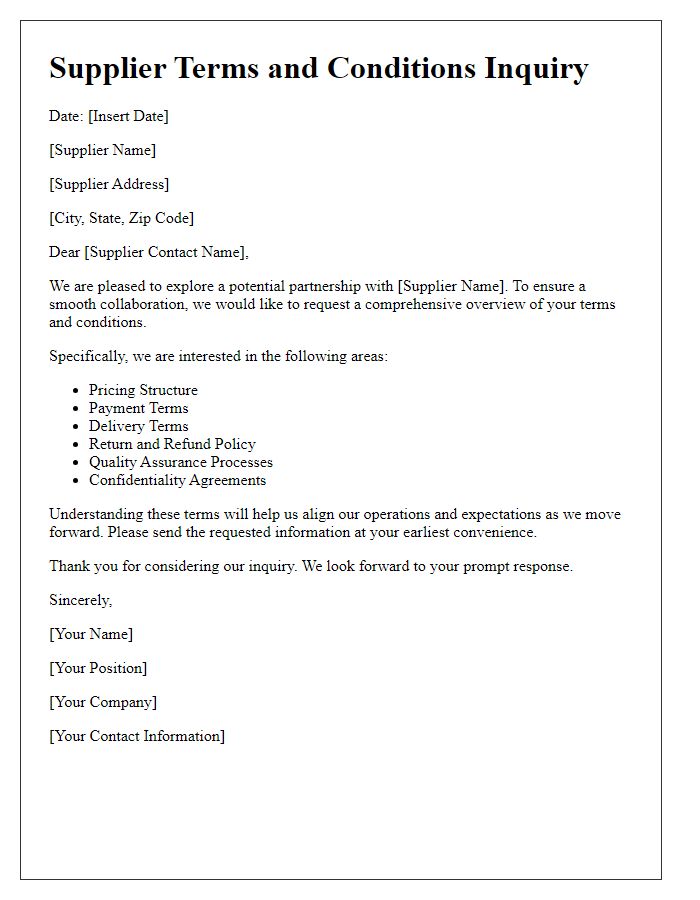
Letter template of Supplier Terms and Conditions Inquiry for Contract Renewal
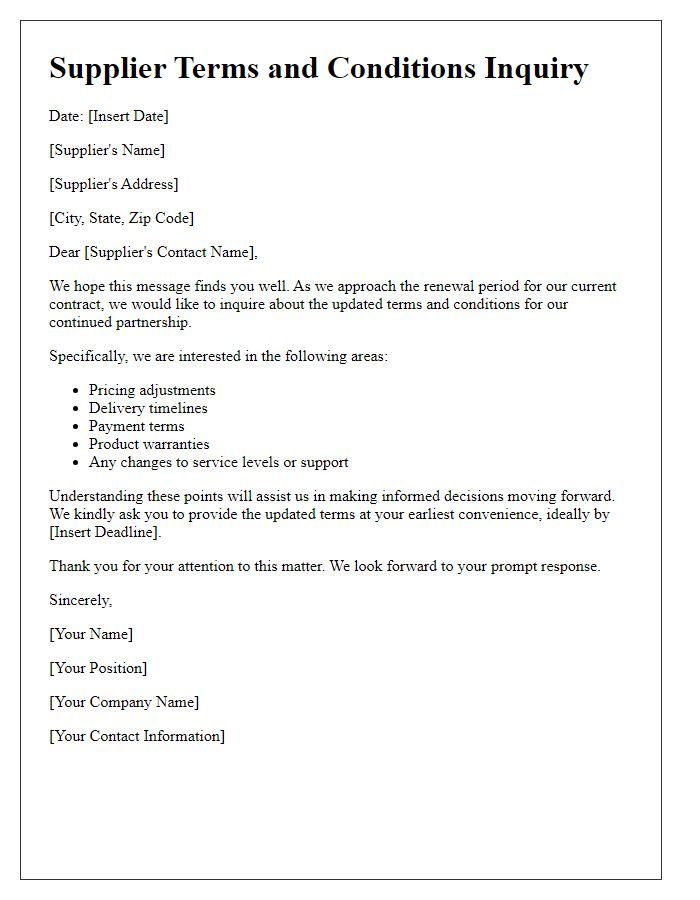
Letter template of Supplier Terms and Conditions Inquiry for Price Negotiation
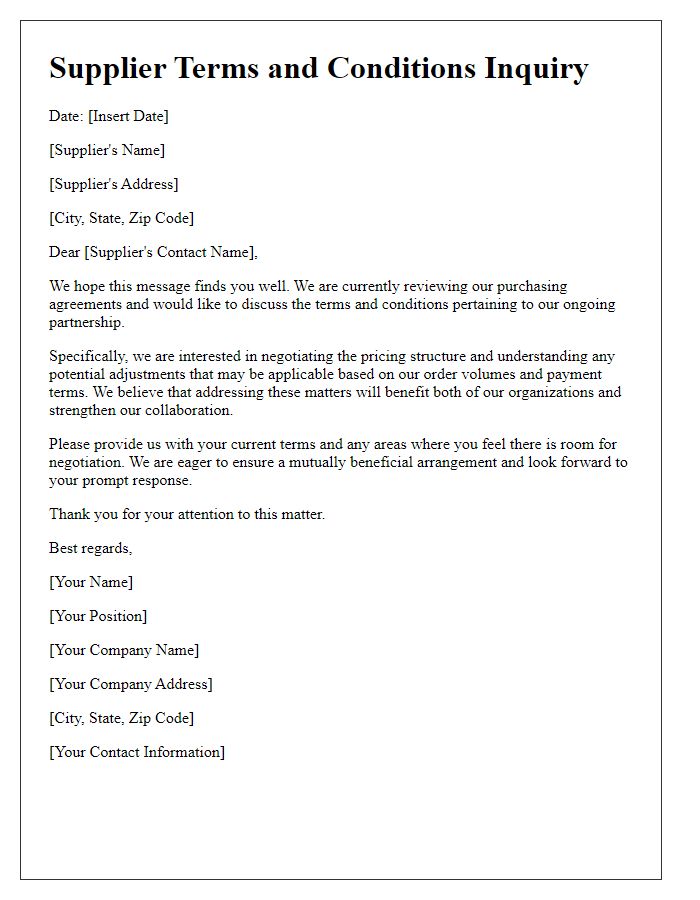
Letter template of Supplier Terms and Conditions Inquiry for Compliance Clarification
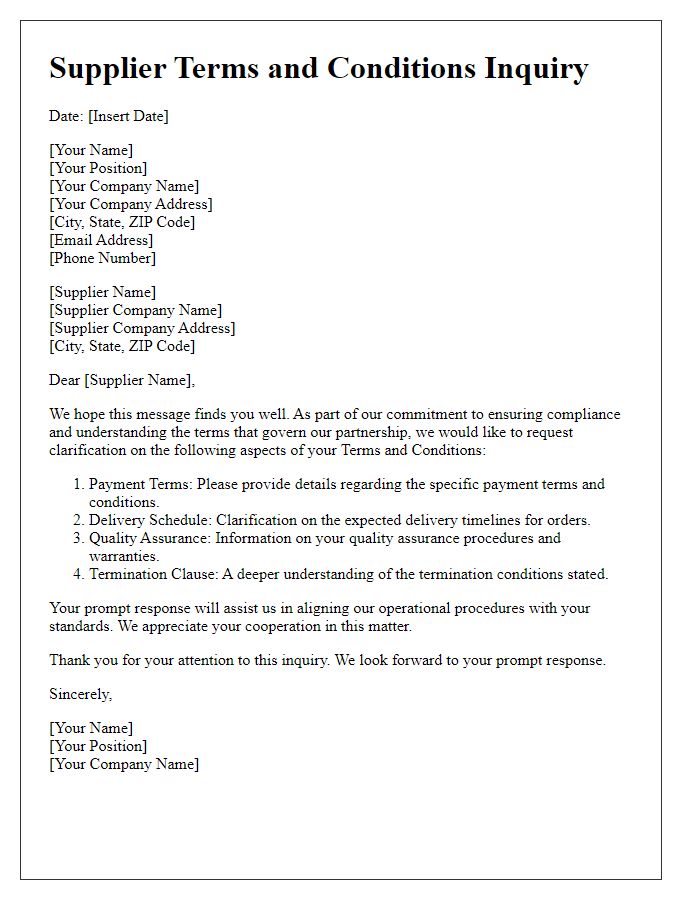
Letter template of Supplier Terms and Conditions Inquiry for Order Fulfillment Specifications
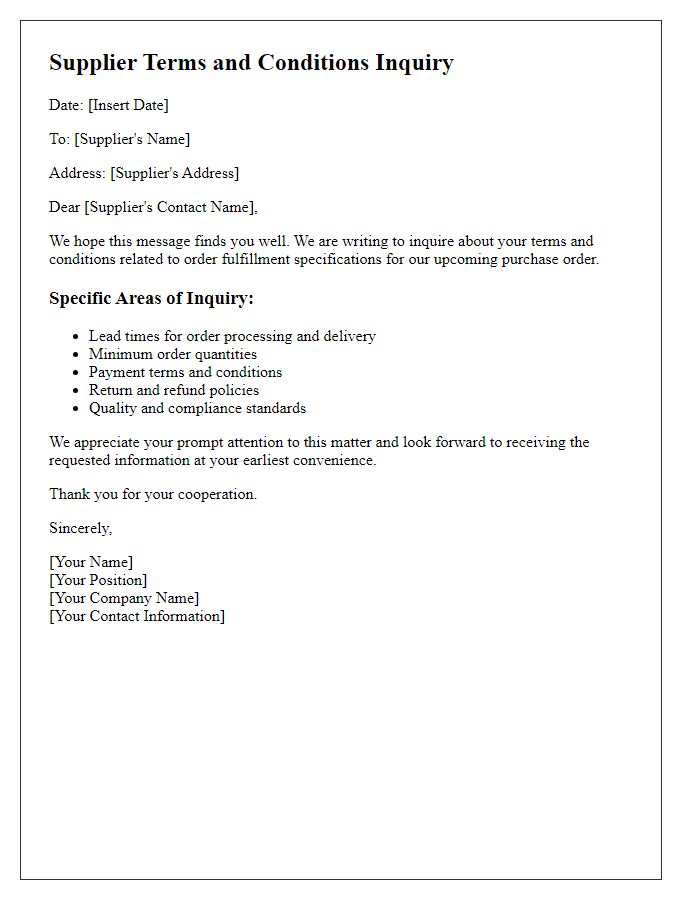
Letter template of Supplier Terms and Conditions Inquiry for Quality Assurance Standards
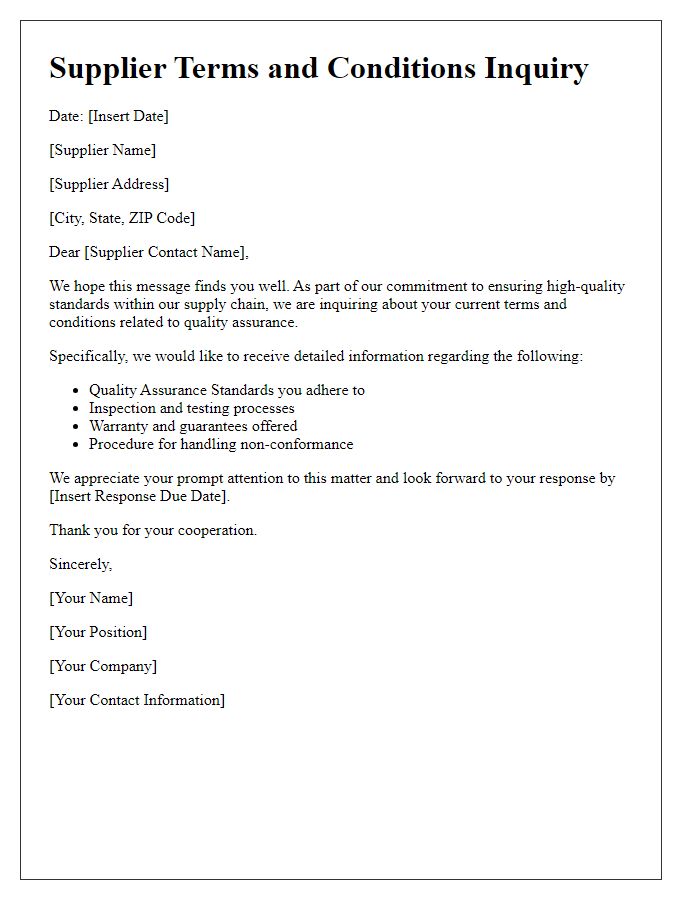
Letter template of Supplier Terms and Conditions Inquiry for Payment Terms Details
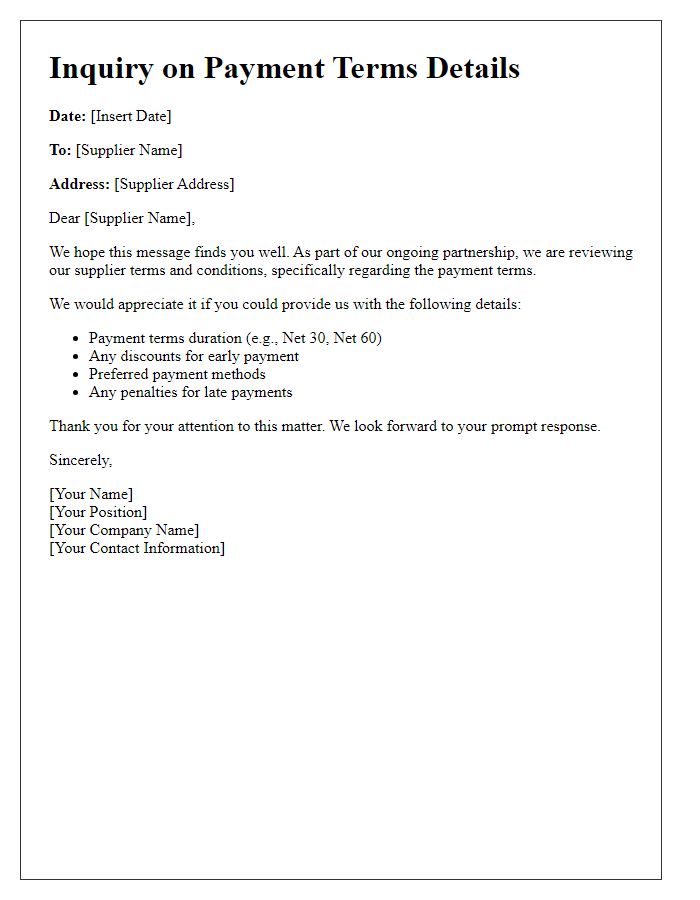
Letter template of Supplier Terms and Conditions Inquiry for Delivery Schedules
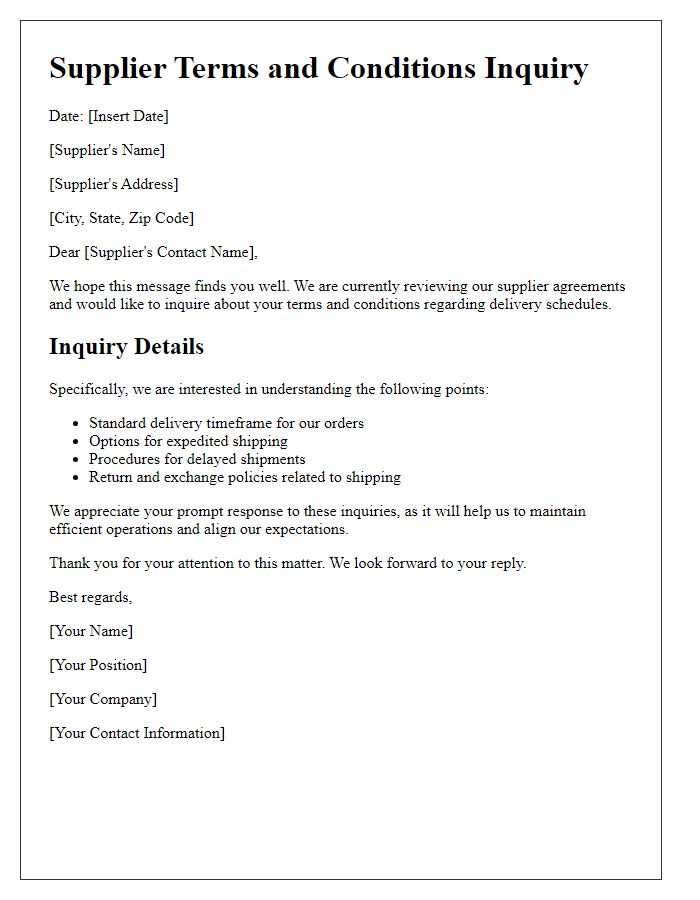
Letter template of Supplier Terms and Conditions Inquiry for Termination Clauses
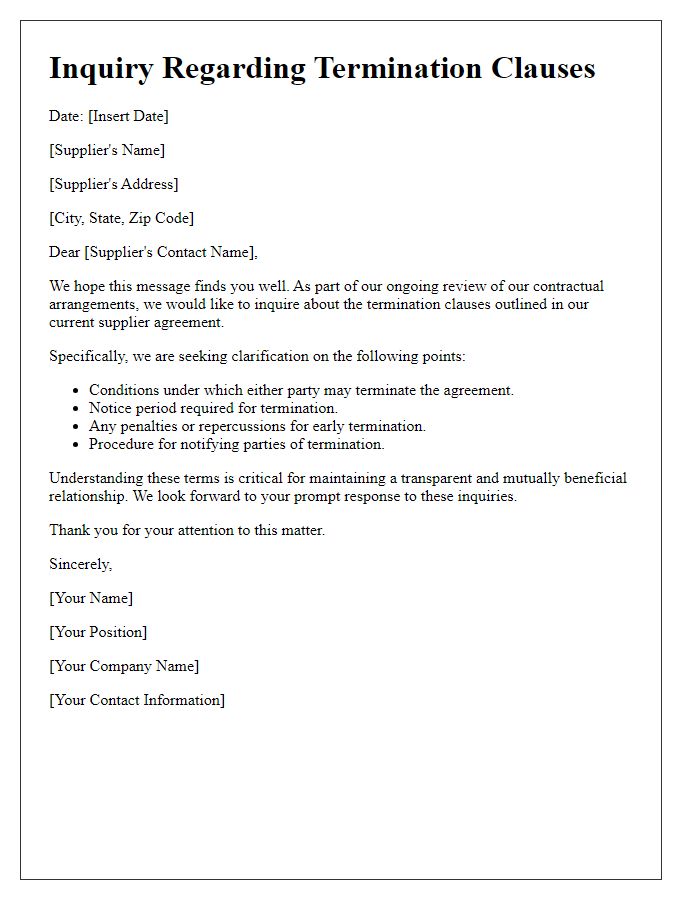

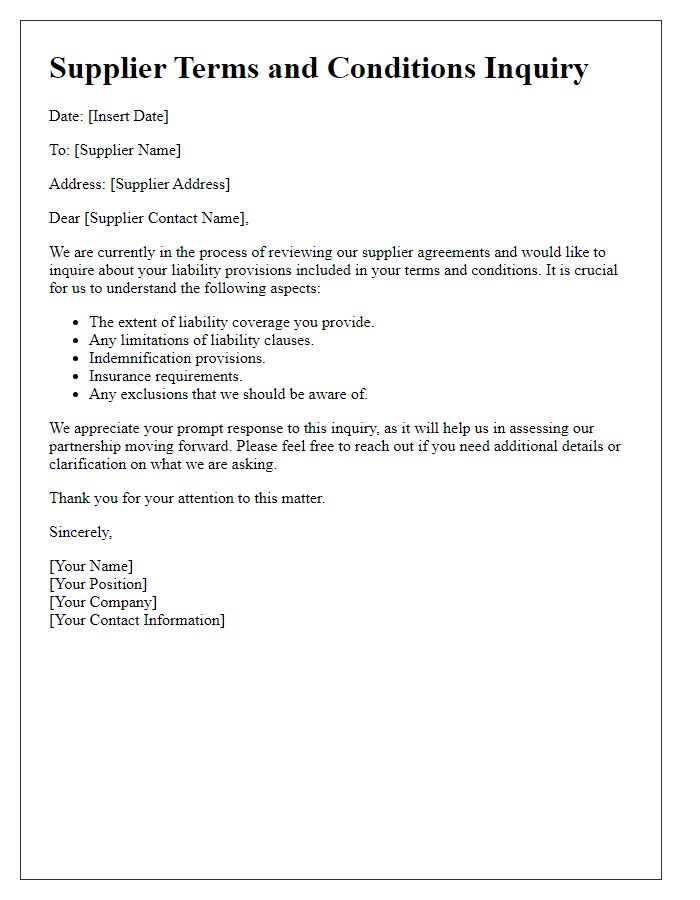

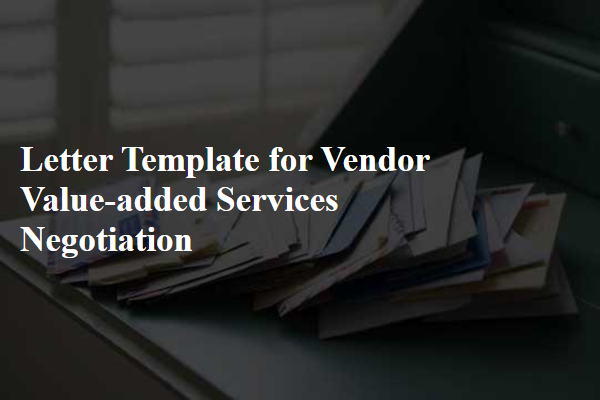
Comments